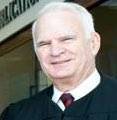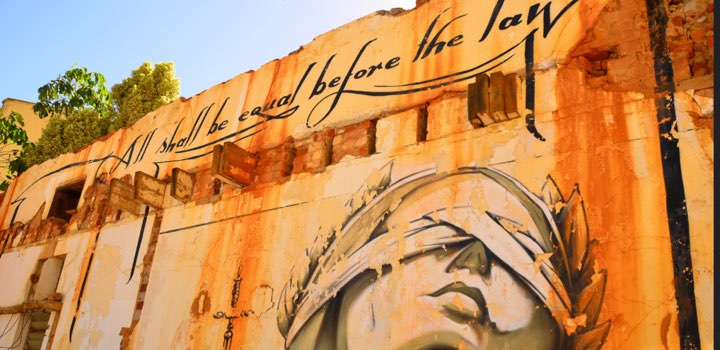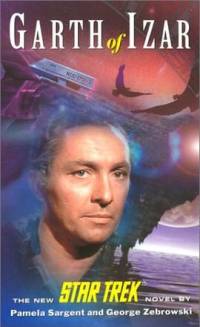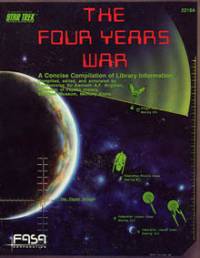Axanar Opposes Studios' Attempt to Exclude Evidence
Defendants Want to Use Altered Financials and J.J. Abrams, Justin Lin’s Testimony
Table of Contents
See also: Judge Rules on Excluding Evidence and Axanar Seeks to Exclude Major Evidence, Witnesses
In documents filed with the court January 6, 2017, lawyers for producer Alec Peters opposed attempts by CBS and Paramount Pictures to exclude evidence and witnesses from their defense against allegations Axanar Productions infringed on Star Trek copyrights.
The defense documents took aim at the studios’ effort to exclude a second set of financial records submitted by Peters that omitted his personal expenses that were paid for out of funds raised from Star Trek fans for the production of the feature film, Axanar.
DRAFT This is a developing story. This article should be considered a draft until this notice is removed.
Peters’ attorneys also fought CBS and Paramount’s effort to exclude testimony from Star Trek producer J.J. Abrams and director Justin Lin, whose supposed support of fan films justified Peters’ unauthorized use of copyrighted Star Trek elements in the short, Prelude to Axanar, and the as-yet unproduced Axanar.
The defense took issue with the studios’ effort to have revised versions of the Axanar script excluded from the trial.
Evidence Already Considered
In a separate summary judgment ruling earlier in the week, however, federal Judge R. Gary Klausner appeared to have considered some of the evidence the defense had hoped he would rule inadmissible.
Second Set of Financials
See also: Filings Shine Light on Weaknesses of Axanar Defense
In his first deposition, Peters had first turned over financial records detailing his spending of more than $1.4 million. A significant portion of that, the plaintiffs claimed, was spent on the personal expenses of Peters, his then-girlfriend Diana Kingsbury, Axanar’s director of fulfillment, and other of his friends.
However, between his first and second depositions Peters appeared to have altered Axanar’s financial documents to remove personal expenses he paid for with donor funds, including “tens of thousands of dollars of restaurant bills,” gasoline, car and health insurance, auto maintenance and phone bills for himself, his girlfriend and another friend.1)
That second set of records is what the plaintiffs sought to exclude. The second set is what the defense would prefer the jury see, if jurors were to be allowed to see any of Axanar’s financials at all.
Defense: Financials are Irrelevant
Axanar’s financials are “not relevant to a trial on claims of copyright infringement,” wrote Axanar attorney Erin Ranahan. But if the court insists on admitting such information, Ranahan argued the jury should see “a fuller and more accurate picture of Defendants’ costs and expenditures.”2)
No Profits
Ranahan continued to defend Peters against the studios’ claims he attempted to personally profit from his alleged infringement of Star Trek:
Throughout this lawsuit, plaintiffs have continually mischaracterized donations defendants received as “profits.” … Plaintiffs again mischaracterize facts in their Motion to imply nefarious motives behind the second financial summary.3)
The first set of records Peters produced were instead “unverified and interim notes of costs incurred by Axanar and expenditures,” she added. Peters, however, had repeatedly claimed his records had already been prepared and reviewed by an accountant, contradicting his own attorney.
Misstating Judge's Ruling
On the issue of Axanar profits, Ranahan appeared to mischaracterize Klausner’s finding about profits this way:
… Given that the Court found “Defendants [did] not profit directly from distributing their works.“4)

A more complete view of the judge’s order, however, gave a different impression, looking beyond direct profits attributable only to distribution of the Axanar works:
The crux of the profit/nonprofit distinction is not whether the sole motive of the use is monetary gain but whether the user stands to profit from exploitation of the copyrighted material without paying the customary price. … The customary price can include licensing fees [and] non-monetary calculable benefits or advantages.
Here, it is undisputed that the Defendants did not pay Plaintiffs for a license. It is undisputed that Peters hoped to derive non-monetary benefits, for example, other job opportunities, from the Axanar Works. Defendants profit from exploitation of the copyrighted material without paying the customary price. … The Axanar Works are commercial.
Defendants argue that the Axanar Works are not commercial because they are, and will be, distributed for free. This argument is unpersuasive because, even though Defendants do not profit directly from distributing the works, common experience suggests that Defendants stood to gain at least indirect commercial benefit from the viewership boost which they had reason to hope would (and in fact did) result from the Axanar Works. The successful fundraising campaign leveraging the popularity of Prelude is an example of such indirect benefit.5)
Abrams-Lin Testimony
Ranahan also defended keeping testimony from Abrams and Lin in the case. The plaintiffs had sought to bar them as witnesses because they are neither employees of, nor official spokesmen for, either CBS or Paramount, making their opinions about Axanar or fan films irrelevant.
But Ranahan argued otherwise, claiming Peters had relied on a half-century of the studios’ tolerance for fan works to proceed with his production:
[We] seek to introduce their testimony as … evidence of Star Trek fan film culture, which is directly relevant to Plaintiffs’ willful infringement claim and to the determination of the amount of any actual or statutory damages.6)
Tolerated Use
Ranahan argues that the kind of support proclaimed by Abrams and Lin led Peters to believe that Axanar would be tolerated by the studios:
Defendants reasonably believed – and actually were – operating within the enduring tradition of Star Trek-inspired works of fan faction, which have been long tolerated and encouraged by Plaintiffs since the inception of the Star Trek franchise. 7)
CBS Warned Axanar
Of course, that contention may be belied by the very public warning CBS gave Axanar in August 2015, four months before filing suit, about possible legal repercussions to its commercial appropriation of Star Trek. Following a fruitless meeting between Peters and two CBS officials, the industry news site, The Wrap, asks of Axanar, “[Its] seven-figure bankroll raises questions about just how “fan” the project is and at what point it poses a threat to the authorized franchise.” In response, CBS issued this statement:
CBS has not authorized, sanctioned or licensed this project in any way, and this has been communicated to those involved. We continue to object to professional commercial ventures trading off our property rights and are considering further options to protect these rights.8)
Revised Scripts
Ranahan also tried to turn aside the studios’ attempt to exclude Axanar scripts revised since the lawsuit was filed:
Allowing introduction of multiple versions of the script, many of which differ substantially from both Plaintiffs’ [Star Trek] Works and the November 26, 2015 script, supports Defendants’ contention that comparing that superseded script to Plaintiffs’ Works for purposes of substantial similarity is pointless.9)
The scripts developed by Peters and his collaborators following filing of the lawsuit should be allowed into evidence, Ranahan asserted, because they demonstrate the defendants’ level of originality apart from Star Trek copyrighted elements.
While Klausner’s order on summary judgment didn’t address the issue directly, two findings may come to bear on this issue:
Settlement Negotiations
Interestingly, the filings included sealed details about each side’s settlement demands during their unsuccessful negotiations.
Other Evidence to Keep from Jury
Among the motions filed, the parties sought to exclude the following evidence:
- FAN FILM BLOGGER The studios also wanted to disallow testimony from Axanar surrogate Jonathan Lane as an expert witness on fan films. Lane publishes the pro-Axanar Fan Film Factor blog.
- FAN FILMS Paramount and CBS also wanted to exclude testimony and documents regarding Star Trek fan films, particularly the the fan film guidelines because they contend Axanar by its own admission was a fully professional, independent Star Trek film project, not a fan film.
- GARTH NOVEL, ROLE-PLAYING GAME Axanar wanted to prevent the studios from claiming copyright infringement on any Star Trek works not identified in the plaintiffs’ actual legal complaint, including the Star Trek Role Playing Game Peters has always pointed to as an important source for Axanar, and the 2003 novel, ”Garth of Izar,” which features the same protagonist as that portrayed in Axanar.
- PERSONAL DRAMA Citing “evidence concerning personal drama, smear campaign, and other irrelevant communications” — specifically naming former staff, director Gossett and CTO McIntosh — Axanar wanted all their testimony disallowed.
- THE NAME ‘STAR TREK’ Axanar wanted to exclude any evidence “regarding defendants’ use of the name ‘Star Trek,’” in fact largely asking the court to prevent introduction of specific Star Trek elements such as Vulcans, Klingons, the command insignia, Starfleet, the starship Enterprise, Romulans, Tellarites, Andorians and characters like Garth of Izar, Vulcan ambassador Soval, Captain Richard Robau, historian John Gill, Spock’s father Sarek, among others, claiming they are not protected by copyright.
- EXPERT FINANCIAL WITNESS The studios wanted to exclude the testimony of Axanar’s expert financial witness, certified public accountant Christian Tregillis.
- AXANAR’S QUALITY Axanar also asked plaintiffs be prevented from referring to “the quality of defendants’ works”
- EXPERT MEDIA WITNESS CBS and Paramount sought to exclude expert testimony of academic Henry Jenkins, a professor at the University of Southern California, who has argued that fan works deserve protection under copyright law’s fair use provisions.
Keywords



